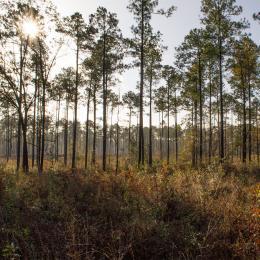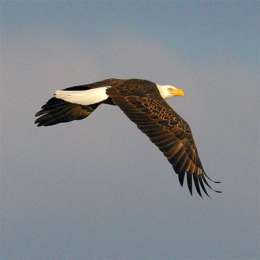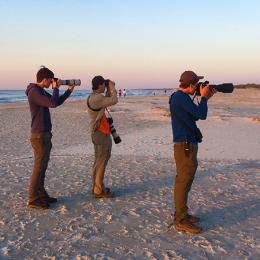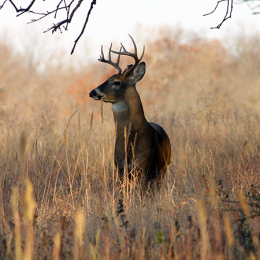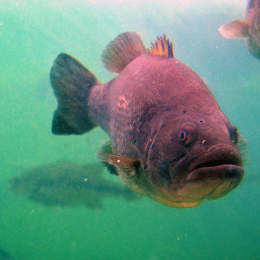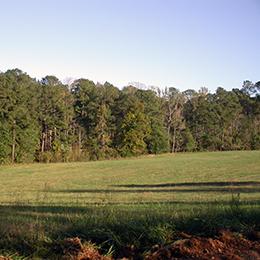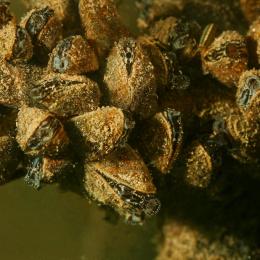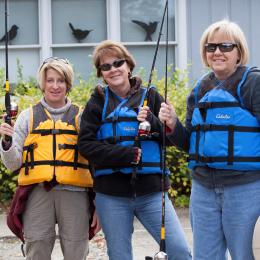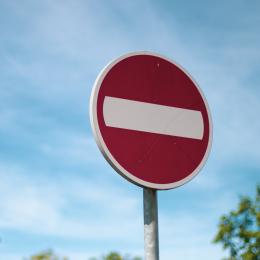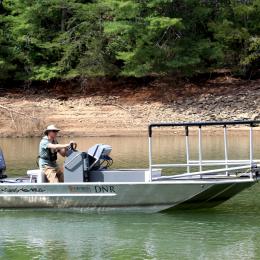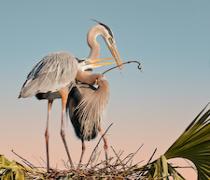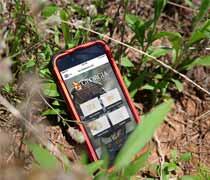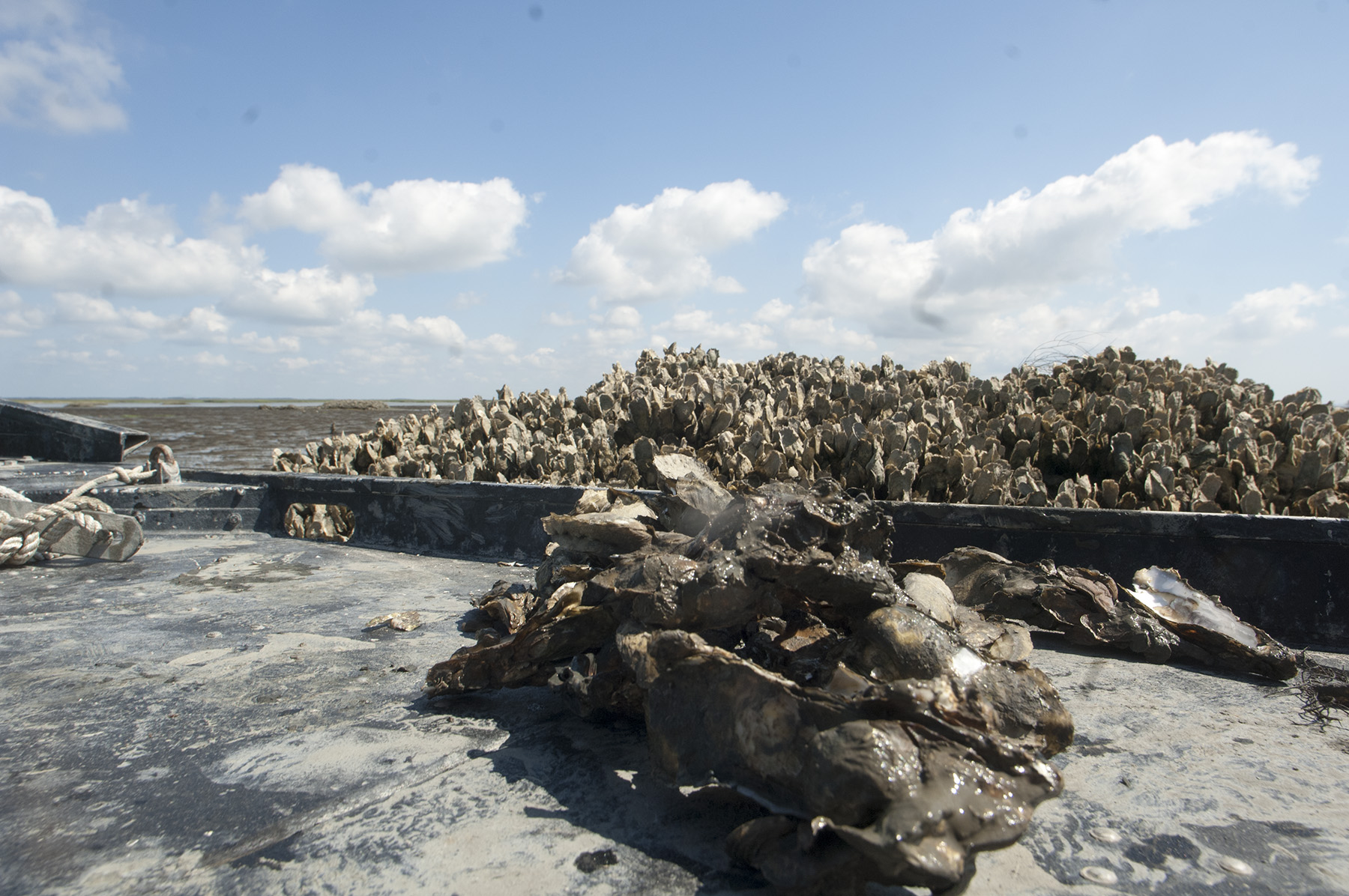
BRUNSWICK, Ga. (Oct. 22, 2019) -- A division of the Georgia Department of Natural Resources (DNR) is seeking to change the state’s Saltwater Fishing Regulations to provide for shellfish mariculture in estuarine waters and to comply with a law passed by the General Assembly earlier this year.
DNR’s Coastal Resources Division (CRD) on Tuesday asked the state Board of Natural Resources to consider new rules that would adopt the overarching National Shellfish Sanitation Program Model Ordinance; establish commercial shellfish seed sizes for mariculture; set requirements for shellfish seed health and importation; and set criteria for subtidal water bottom leases and lease terms.
If approved by the board, the new rule would additionally create a process for certifying shellfish hatcheries and nurseries in Georgia. Board approval would also bring the department into compliance with House Bill 501, passed by the General Assembly and signed by Gov. Brian Kemp on May 6, 2019. The law goes into effect March 1, 2020.
The public will have the opportunity to provide comment on the proposed rules beginning today until 4:30 p.m. Nov. 21, 2019. A public comment meeting will also be held at 5:30 p.m. Nov. 6, 2019, at the Susan Shipman Environmental Education Center, One Conservation Way, Brunswick, Ga.
The full rules proposal is available for download at https://coastalgadnr.org/sites/default/files/crd/pdf/shellfish_briefing.pdf. Members of the public may send comments to:
Cason Kinstle
Coastal Resources Division
One Conservation Way
Brunswick, GA 31520
cason.kinstle@dnr.ga.gov
Following the public comment period, the Board of Natural Resources will consider the rule change at 10 a.m. Dec. 4, 2019, at Lake Blackshear Resort, 2450-H U.S. Highway 280 West, Cordele, Ga.The meeting is open to the public.
BACKGROUND:
Georgia previously had a prosperous and lucrative oyster industry through the early 1900s. Today, Georgia’s oyster harvest represents a fraction of former yields. The oysters harvested in Georgia are native and wild. New techniques for oyster mariculture, or farming, in subtidal waters of creeks and rivers have been developed and tested in Georgia demonstrating the potential for substantial economic growth in the industry.
Georgia’s existing laws governing shellfish harvest date back to the late 1800’s and were based on the rights of riparian owners to plant and harvest shellfish. There was flexibility in the law such that in the 1980s, the shellfish industry was reinvigorated with the startup of clam mariculture in intertidal mud flats. To experience a similar revitalization in oyster mariculture, significant policy reform was required. All other Southeastern states have recently adopted new regulations to bolster their oyster farming industries. However, the challenges associated with oyster farming are not insignificant and include ensuring public health and food safety, siting mariculture facilities to be compatible with existing uses, and enforcement.
In 2019, the Georgia General Assembly passed House Bill 501 providing the basis for shellfish mariculture in a manner that is compatible with the environment and other public uses of coastal waters. The bill recognizes that shellfish mariculture provides increased seafood production and long-term economic opportunities as well as increased ecological benefits to the estuarine environment. It further acknowledges the public health concerns associated with the consumption of raw or undercooked shellfish, especially those harvested during warm-water, summer conditions.
House Bill 501 amends O.C.G.A Title 27, Chapter 4, to provide for mariculture development and includes provisions for permitting, approving harvest in areas otherwise closed, leasing of intertidal and subtidal water bottoms, performance bonds, requirements for operational plans, shellfish mariculture permits and importation of shellfish seed. The bill also authorizes the Board of Natural Resources to promulgate rules necessary to develop and cultivate the shellfish industry including, but not limited to size, possession and creel limits; seasonal criteria; lease siting criteria; methods for issuing leases; and importation.
MORE INFORMATION:
Learn more about CRD's shellfish and water quality monitoring programs at https://coastalgadnr.org/Shellfish.
Learn more about commercial shellfish harvesting in Georgia at https://coastalgadnr.org/commercialshellfishharvest.
Learn more about the lifecycle and other characteristics of the Eastern oyster at https://coastalgadnr.org/oyster.
Anyone with questions may contact Tyler Jones, CRD’s communications specialist, at (912) 262-3140 or tyler.jones@dnr.ga.gov.
CRD is the division of DNR entrusted to manage Georgia’s coastal marshes, beaches, waters and fisheries for the benefit of present and future generations. The division strives to be an agency of knowledgeable and compassionate professionals who are trusted, respected and empowered to help the public be good stewards of Georgia’s natural assets and socio-cultural heritage. It is headquartered in Brunswick.






